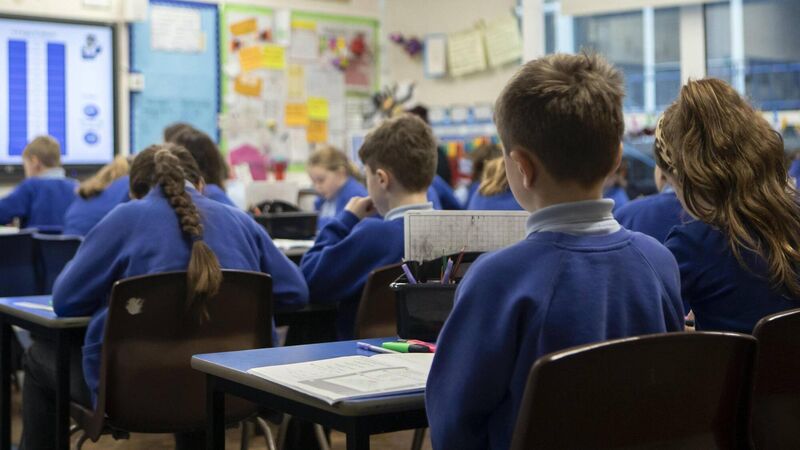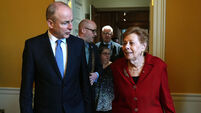Junior infant teachers spending less time on religion

The ‘Children’s School Lives’ study, a landmark project following 4,000 children through primary school to capture a glimpse inside modern classrooms, has found teachers least enjoy teaching religion, drama and PE.
Junior infant teachers are spending less time teaching religion than recommended by the curriculum, a new report has found.
The ‘Children’s School Lives’ study, a landmark project following 4,000 children through primary school to capture a glimpse inside modern classrooms, has found teachers least enjoy teaching religion, drama and PE.
The latest report, to be published by researchers at University College Dublin (UCD) on Thursday morning, focuses on the experiences of 128 junior infants classes in 83 primary schools across Ireland.
Almost half of the children who took part (46%) reported feeling excited on their first day of school, and a further 25% reported feeling happy.
Class sizes ranged from eight to 32 children, with the average class size recorded at 21 students.
Teachers were asked to rate their enjoyment of teaching a range of subjects, with the highest levels recorded for English, maths, and social, environmental and scientific education (SESE).
The least enjoyed subjects to teach were religious education (RE), drama and PE. One in four said they enjoyed teaching religious education "not at all" or rarely.
Almost 70% of the teachers who took part in the study reported spending less time on RE than recommended by the primary school curriculum.
For most subjects, a large proportion of the teachers reported spending about the suggested time on them, while 63% reported spending more time teaching English or Irish, depending on the medium of instruction in the school.
Most schools that took part are English-medium schools, and, the majority (87%) had a Catholic-ethos.
Of the teachers who opted to answer questions on religion, most identified as Roman Catholic. Almost a third (30%) said they attended religious services only on religious holidays, 11% said once a year, and 12% said they attended never, or practically never.
"Curriculum overload" was a challenge often cited by the junior infant teachers who took part in the study, and particular challenges were noted by those teaching in Deis schools.
This included time spent making sure children were "ready" to engage with the curriculum.
More than three-quarters of the schools had some students of immigrant background. However, this was not evenly distributed – 12% reported having over 40% of their school comprised of children from immigrant backgrounds.
A further 22% had over a quarter of children from immigrant communities. Conversely, a quarter of schools had no children of immigrant background.
While English was the main language spoken at home for 78% of the student's households, 21 other languages were reported as being spoken.
The research was commissioned by the National Council for Curriculum and Assessment (NCCA) and led by Professor Dympna Devine, and assistant professors Seaneen Sloan, Jennifer Symonds and Gabriela Martinez Sainz.
Ground-breaking research like the Children's School Lives study will make a "hugely significant" contribution to the NCCA's ongoing work in redeveloping the primary curriculum, said Prof Mary O'Sullivan, NCCA chairperson.












